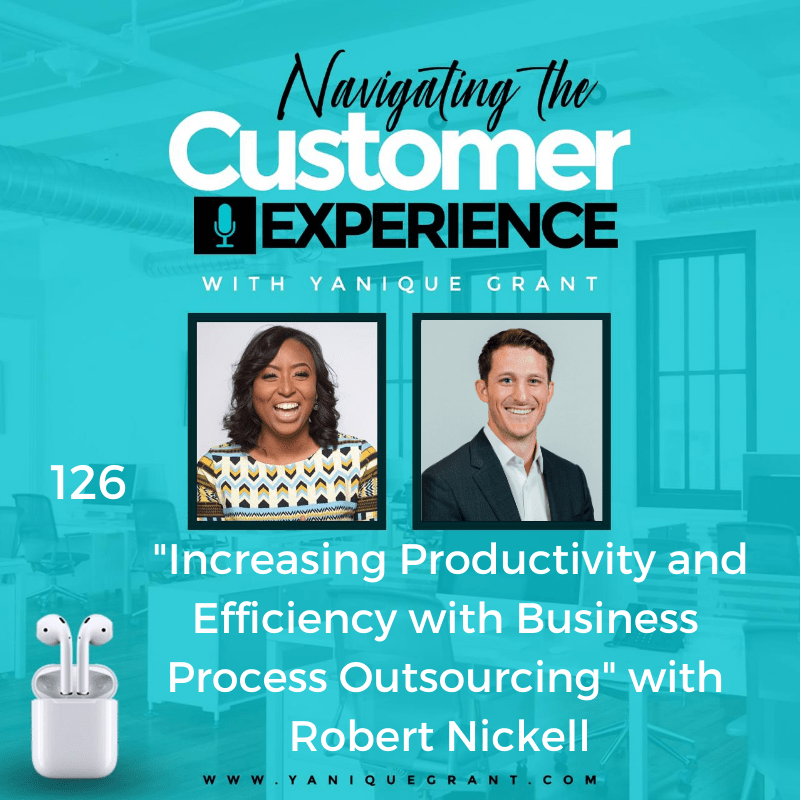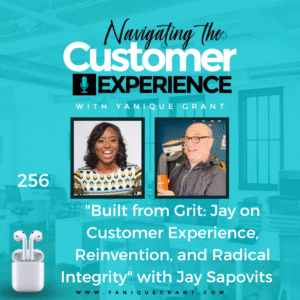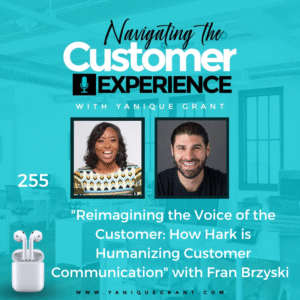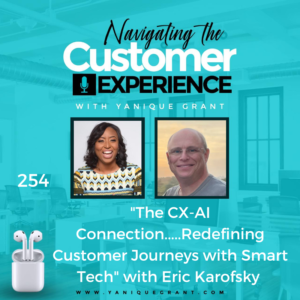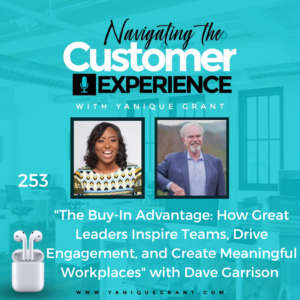Robert Nickell is the founder and CEO of Rocket Station, the leading provider of outsourced staffing and process management for the Business Process Outsourcing (BPO) industry. Operating in Dallas Fort Worth since 2013. Rocket Station helps small to mid-sized businesses with efficiency and profitability. Simplified staffing allows operators to focus on core competencies and outsource the rest.
Robert started his career as an entrepreneur in the real estate industry which has positioned him to support many real estate entrepreneurs and established firms who are struggling with staffing and human resources.
Robert and his team’s strength in evaluating best practices and efficient ways to staff capacity have continued to propel Rocket Station. When not helping clients build better businesses, you’ll find Robert traveling the world or hanging out with his nephews in Dallas.
Questions
- Could you just share with us a little bit about your journey? In your own words, how it is that you got to where you are today?
- So tell us a little bit about if a client was to hire you to, let’s say, you got a customer who is exactly where you were many years ago. What are some of the benefits that they would get? What are some of the things that they would need to do like maybe one, two or three things that maybe they’re not doing that would help them to be more productive?
- What would maybe two or three recommendations that you have done in your own business or that you’ve seen other persons do that have really been able to still sustain a strong customer experience where your customers are advocates of your business?
- Some people genuinely feel like if they don’t want jump in their car, or take public transportation and get physically to a location that the work can’t get done. Is that a recruitment issue or is that a leadership mind-set issue? How do they get over that hump to feel like the person is going to be just as productive if they were working from home?
- What’s the one online resource, tool, website or app that you absolutely cannot live without in your business?
- Could you share with us maybe one or two books that have had the biggest impact on you? It could be a book that you read a very long time ago, or maybe something you read recently, but it still has a great impact on you.
- Could you share with us what’s one thing that’s going on in your life right now, it could be something that you’re really excited about. But it must be something that you’re either working on to develop yourself or your people.
- Where can listeners find you online?
- Do you have a quote or saying that during times of adversity or challenge, you’ll tend to revert to this quote or saying, it kind of helps to get you back on track or get you refocused. Do you have one of those?
Highlights
Robert’s Journey
Robert shared that he quit his first job out of college pretty quick, he thinks he only worked a traditional job for a couple years. And he decided that he wanted to be an entrepreneur, because he really wanted to control his own time, he wanted to be able to do what he wanted to do, with who he wanted to do. And he likes to travel as mentioned, so he wanted to be able to take vacations.
And so, he jumped right into entrepreneurship and as the bio mentioned, he started with real estate. And he thought that real estate was going to be the answer to his solutions and not being able to control his own time. And really what happened was, he just kind of became a slave to his business, he was a one man show, he was working 60, 70 hours a week and the only way he could do more transactions or make more money in real estate was just to work more hours.
And he’d kind of hit a wall, he’d kind of hit a breaking point because it wasn’t, instead of his business serving the lifestyle that he was hoping to create, he was totally serving his business every single day. But he was lucky to have some really awesome mentors and some people who had built some amazing businesses and they just kind of showed him that there’s opportunities to create a better business and there’s a solution, you just can’t do it all yourself.
And so he started trying to hire people and train people that were friends and family to work in his real estate business and that just didn’t work very well. And he really struggled with that and then he tried to do traditional job postings and use the websites like ladders, and indeed, in all the ways that you can wise hire and all the different options that exists. And again, he failed at that. People came in and he would hire people that he dreaded driving into the office every single day because he felt like he had to tell people what to do all day.
And he mentioned having great mentors, and one of them really showed him that he was doing the process backwards. He was hiring people, throwing them at a problem and then hoping that they were just going to get to solve it. When really I needed to start with the end in mind, have systems, have processes, have structure around all the tasks that are happening every day. And then somebody knows exactly what success looks like and they can come in and really help.
He was just working too many hours, he needed some help, he tried the traditional hiring model, he failed with that over and over again. And so, he kind of started from scratch, started with building systems and processes, which he didn’t really have enough of, then hired people and started doing that really well.
And today, they’re just kind of taking those all the failings that he had early on and that most businesses struggle with. And they just solve all those problems. They like to think they’re the easy button to productivity and efficiency.
Robert Nickell
Tips on How to Be More Productive
Me: So tell us a little bit about if a client was to hire you to, let’s say, you got a customer who is exactly where you were many years ago. What are some of the benefits that they would get? What are some of the things that they would need to do like maybe one, two or three things that maybe they’re not doing that would help them to be more productive?
Robert shared that he thinks the first thing is just be aware of where you spend your time all day. He can’t tell you how many people they talk to that they don’t really understand where they’re spending their time. Because we all get busy, we have a lot of things going on. So when the phone rings, you answered, or when emails come through, we respond.
And so, usually entrepreneurs just have so much going on in there, they’re putting out fires all day, but they’re not super aware of all the things they’re actually doing. So what they like to do is have people list out and write down kind of what they’re doing all day. And that usually is a little bit hard for people right out the gate because we rarely take the time to slow down and think about what we’re really doing.
And from there, now, it’s a whole lot easier to identify tasks that really aren’t worth your time, or it’s not really the highest and best use of your time. And so if you start with awareness, then you can identify some of those tasks that are not great use of your time and effort, researching different opportunities, or finding solutions to those problems becomes a whole lot easier. So he thinks awareness is really the first step for anybody.
Me: And Business Process Outsourcing can be applied to any industry, correct?
Robert stated yes and that’s what’s really amazing about what’s happened the last few years with the development of technology, most everything’s done online, we’re having this conversation online, there’s Voice over IP phone systems, and everything sent through email and Cloud storage. So there’s been a massive shift the last several years to outsource a huge percentage of operations just because it’s so easy and simple to do that in itself, and it solves many of the problems that entrepreneurs face every day.
So, the pandemic kind of accelerated that process in a lot of ways because people were forced to work from home and think about things a little bit differently. But this has been going on for a while. And part of the reason why he likes Yanique’s show is because Yanique oftentimes really talk about the customer, like what it takes to really build amazing customer experience and the solutions behind that.
And there’s just so many amazing tools and resources today that can really drive the customer service experience, which ultimately does nothing but improve the business and the bottom line.
Recommendations for Sustaining a Strong Customer Experience
Me: I’m glad you touch on that, because that was actually my next question. So you outsource to all of these different persons to improve productivity processes to make things smoother for your customer. Typically, in an organization, traditional organization, we’re accustomed to having a mission and a vision and a set of core values and cultural beliefs. And people come into our building every day, or they’re seeing their manager on a constant basis, they have like pow wows or monthly or weekly meetings, how do you bring all of that together when you are outsourcing with so many different things to take into consideration, culture, mind-set.
What would maybe two or three recommendations that you have done in your own business or that you’ve seen other persons do that have really been able to still sustain a strong customer experience where your customers are advocates of your business?
Robert stated that it’s a great question because most people think about outsourcing as just like a tool that is over there, it’s not tangible. And for them that, there’s lots of ways you can outsource. But for them, what they believe makes the process successful is they try to replicate all the things that you just mentioned, culture, intimacy meetings, alignment, transparency, communication, all of those things that seem to just happen in an office, you can replicate the exact same things with virtual teams.
So the way they work with dedicated staffing, so it’s same people showing up to work, but dedicated to your company, so they’re not working on multiple accounts, or multiple companies, they are a dedicated staffing model. So that makes it a little bit easier for them to create and replicate some of the things you’re talking about.
So, they help facilitate from their company, the first thing that they do is they document all your systems and processes so you have complete alignment and transparency in what’s happening in the organization, but that also creates the task maps and the job descriptions.
So the team members that are placed have very specific roles and swim lanes and if they’re doing customer service and customer support, they’ve got their scripts built, they’re dedicated to your company and it’s going to function exactly like a W2 would. And with technology and tools today, it makes it super easy to replicate the rhythm that you get within an office, all of their teams check in the morning as soon as they get there you exchange pleasantries, you have all the same normal conversations, whether that’s in Zoom, they use Zoom as a company, a lot of their clients use Slack or Skype or Salesforce or Custom PHP programmes, whatever it is.
They integrate their teams into your organization, and they should be a part of your weekly meetings, they should be a part of your monthly reviews, they should have KPIs the exact same way that all employees should have KPIs. And they believe that you should manage to those outcomes and those numbers and not have to micromanage task. And if you go about that the right way, by building systems and processes, documenting everything that happens on the front end, now you can set expectations for what task management looks like.
And culture for him is just when you’ve got a team that understands exactly what’s expected of them, and everybody’s performing to expected outcomes, and you have success. Now, culture is going to be amazing in the organization. So there’s lots of ways that you can replicate the office experience in a virtual environment and that’s part of what their teams do is help you set up every step of the process, and they never leave you, they stay with you for the life of the account.
And the purpose of that is to do exactly what you’re talking about, to replicate amazing culture, you talk about having raving fans and improving net promoter scores, that comes from a very efficient aligned organization.
And today, it’s easier than ever to be able to create that process and it’s not only doable, but that’s what the expectation should be, whether your teams are working in office, or they’re working virtually, and you’re outsourcing customer service, or any of the other tasks within the business, you can totally recreate and replicate culture the exact same way you can in an office.
Being Productive While Working From Home
Me: Okay, so it’s very possible, as you said, to replicate it in a virtual space. Now, let’s talk about on a granular level, employees, because this is a question that I get all the time clients, for example, “You want us to go virtual and we’re expected to work remotely. Yes, it can improve productivity, and definitely efficiency, maybe even save us some money. But what if the persons that we’re sending to work at home are not disciplined enough, they need a structure, they need to come in to an office space.” I think some people genuinely feel like if they don’t want jump in their car, or take public transportation and get physically to a location that the work can’t get done.
Is that a recruitment issue or is that a leadership mind-set issue? How do they get over that hump to feel like the person is going to be just as productive if they were working from home?
Robert asked if he’s hearing correcting, if it’s that’s a leadership issue or if that’s a recruitment issue, the answer, he thinks is yes. He thinks it’s both of those things, if you have the right team members in play, and we all work a little bit differently.
They leverage a tool in their organization called Culture Index and the idea of that tool is a couple things, it’s not just to identify 10 trends within personality so that we can really understand each other, but it’s also so that we can communicate and coordinate and, and communicate efficiently within the organization. And that’s on more the recruiting side having the right people in place but all of us operate a little bit differently and you’re talking about people needing structure, if you’re going to be forced to work from home, then you need to just try to replicate some structure.
For example, like their team’s the same way, they had to reset expectations, working hours are exactly the same and same with dress code because you’ve got to get on team meetings and calls periodically throughout the day and week, and interact with customers and clients like dress codes, the same the same expectations about having a dedicated working station where there’s no food and drink, and you don’t eat at the desk, and during calls and those types of things.
So that’s definitely, both of those things. But he thinks what’s really happening is we’re going to have this hybrid working model, where he has got an office in Dallas where W2’s come in, and they work out of the office, and they have an option whether or not they can come in.
And then he has a group of people who basically never come in and he has a group that comes in consistently because they need what you’re talking about. But with their virtual teams because most of their teams are based in the Philippines, they all have dedicated workstations and it’s just part of the process that they create, but for their US based staff, they’re really trying to put the right leadership in place with the right team members underneath them, but then give them the option based on what they need to be successful whether they need to come into the office or not.
And he thinks you’re going to see both smaller organizations have to make that adjustment the same way Facebook and Chase Bank and all these companies are releasing statements saying that that’s exactly what they’re going to do, is just adopt a hybrid model for now.
Because some people if you’re going to hire somebody and they need the structure that you’re talking about, great. Or often times, some of their team members, they have kids and they don’t have the ability with kids at home right now to have workstations that aren’t going to be interrupted and background noise and pets and those types of things. So he thinks what’s really going to happen is you’re going to continue with this hybrid model where you’ll have some part of your workforce in an office and a large part of it will you’ll never see or never have to come in.
Me: Great, very good answer. I think I totally agree with you; you definitely need a blended approach because we’re just not there yet where everybody can just fit into that cycle that we’re trying to create. So I totally agree with you.
App, Website or Tool that Robert Absolutely Can’t Live Without in His Business
When asked about online resources that he can’t live without in his business, Robert shared that for them, they’re totally dependent upon Zoom right now. So, they use Zoom as their voice over IP phone system so all of their team members, they have a phone system that functions just like landline phones, but it’s done over Zoom that also has their chat feature where all of their teams and groups are in Zoom chatting all day.
And that’s one of the reasons why they have such great communication is they really put a lot of structure and expectations on their team about the way they communicate and how often they do, they over communicate as an organization so that’s mostly done in Zoom. And then it’s also their video conferencing tool, so they do their weekly team meetings that are happening right now in the conference room next to each department on Mondays goes through all of the weekly updates. And the same thing on monthly calls that’s done on the video calls with Zoom as well.
So they used to use three different tools, they had Ringcentral as a phone system, they had Slack as their chat tool, and then they had Skype as their video tool. And Zoom has replaced all three of those tools and gone into one box, and they would be pretty lost without it right now.
Me: Wow, that’s brilliant. And they clearly saw the need in the market. They really evolved, I must say, because I used to use them before the pandemic and I have a few clients here in Jamaica that use them for online training. And when I look at the interface to what it was, let’s say two, three years ago, it’s like day and night, they really have put a lot of energy and as you said, the pandemic force a lot of persons to accelerate. I was reading an article yesterday that said; Target’s 2030 goals became their 2020 goals just because of what was happening globally. So, a lot of organizations definitely had to just make that shift very quickly.
Robert shared that that’s also why competition is good, because it forces people into growth and Zoom hadn’t had much competition or much requirement for a last long time. And so, it’s a stagnant programme, he totally agree, it wasn’t very good. But now Microsoft Teams is creating a tool that’s very similar, Salesforce is trying to compete because they’re blending all tools together and so as a result, Zoom had to really step up their game based on the demand and the needs of all of us as their clients. And so, they really have progressed a ton.
And to Yanique’s point, he doesn’t think the pandemic really changed anything that was going to happen; he thinks it just accelerated what was inevitable really quickly. Their goals changed as well, because this concept of work from home and outsourcing now makes a lot more sense to people just because they had to live it and experience it the last year. And so, he’s so ready for the pandemic to end but it’s been fun to see how fast people have been able to change and adapt.
Books That Have Had the Greatest Impact on Robert
When asked about books that have the biggest impact, Robert shared that what really set him up for success was a book called The E-Myth Revisited: Why Most Small Businesses Don’t Work and What to Do About It by Michael E. Gerber. And he talks about the ability to work on your business instead of in your business every day and he describes that as a technician, the person who is actually responsible for all the day to day tasks and all the things that have to be done. And if you’re always a technician, then you can never actually have the business that you really want. So that was super powerful for him was to understand the impact that systems and processes and really clear structure could have on the business. And so, E-Myth by Michael E. Gerber was huge as one of the first books he read, business books that had just the massive impact.
And most recently and it’s been on his shelf for a while, and I read it every single year, it’s Principles: Life and Work by Ray Dalio. Ray’s skill sets are kind of the opposite of what his are. He’s great at sales and client facing or customer engaging activities, he likes to be travelling and on the road and engaging with people. And so, his natural skill sets have never been around the structure and the clarity of operations and how to build a really successful business that’s sustainable, and Principles by Ray Dalio just has so many amazing different topics in there that for him, it’s an annual read for him at the beginning of the year, every single year, and he learns something new every single time.
What Robert is Really Excited About Now!
Robert shared that leadership and inner personal development is a huge thing, not just for his life, but for their teams as well. And so, what he’s most excited about is for what they’re working on, it’s both personal and their team members, it’s their community projects and it’s mostly what they have going on the in the Philippines, they call it Rocket Station Cares. And there’s just so many different ways that they’re supporting and developing communities, both from school service and donation and activities that they’re doing to provide for school children all across the Philippines to medical service that their teams are providing and just resources that they’re continually providing to the communities to do community engagements totally outside the company.
It’s just service, selfless acts of service that they’re setting up for their teams to be able to volunteer and participate in and it’s just been such an amazing thing. And the better their company does, the bigger that platform of Rocket Station Cares becomes.
And so for him, that’s what he’s most excited about what they’re working on, because that’s what it’s really all about to him is their ability to give back to the community and do some amazing things for people that is totally outside of themselves and their personal goals. And so, Rocket Station Cares is what he’s most excited about right now.
Me: Very nice, Rocket Station Cares. It kind of reminds me of my vision for my business, which is, “To create a more caring world,” which came from the cartoon the Care Bears, I don’t know if you remember that cartoon when you’re little if you used to watch it.
Robert shared that their mission statement as a company is, “Enhanced lives through better business,”because that’s kind of similar to what you’re talking about, it’s kind of what it’s all about.
Where Can We Find Robert Online
Website – www.rocketstation.com
Robert shared that there’s lots of great information on their website, they’ve been fortunate to be able to get some endorsements and work with some of the shark tanks and some other great companies. So there’s lots of great information on the website, it’s just www.rocketstation.com.
But what most people, when you hear about outsourcing or you’re thinking about your business, it’s something that you get and you understand, you just don’t know exactly how that applies to you and your business and what steps you should be taking and how that works.
And so, he’d be happy for their development team to spend some time with anybody that’s interested in just having the conversation, it doesn’t matter if you hire their teams or not, there’s no obligation. But on the website, there’s a scheduled time now button and if anybody who’s interested at all, just schedule some time with their team.
Again, there’s no obligation to sign up for their services or anything like that but just to build a roadmap and kind of understand how this could affect you and apply to your business, just hit that scheduled time now button and their development team will spend 30, 45 minutes and answer any and all questions anybody could come up with and if that was a great solution for your business, they would love to work for you. But if it’s not a good solution, it’s no big deal at all, happy to answer questions.
Quote or Saying that During Times of Adversity Robert Uses
When asked about a quote or saying that he tends to revert to, Robert stated that he doesn’t know if it’s really be coming off the top of his head. But he has learned in so many different ways from the Tony Robbins stuff and the Darren Hardy, he spent a lot of time with both. But the real message that he tells himself consistently is, “I’m responsible for everything.”
So whatever he believes to be true, comes. So whenever he’s happy, it’s a choice. Whenever he’s sad, it’s a choice. Whenever they’re having success, it’s because the choices he has made. Whenever he has had failures, it’s because the choices he has made. So, whether things are good or bad, he just tries to look in the mirror and say, “It’s your choices and your actions, you’re responsible for everything.”So, just kind of a personal mantra that he has that it’s to be responsible and take ownership of all things that are in his life.
Please connect with us on Twitter @navigatingcx and also join our Private Facebook Community – Navigating the Customer Experience and listen to our FB Lives weekly with a new guest
Grab the Freebie on Our Website – TOP 10 Online Business Resources for Small Business Owners
Links
- The E-Myth Revisited: Why Most Small Businesses Don’t Work and What to Do About It by Michael E. Gerber
- Principles: Life and Work by Ray Dalio
The ABC’s of a Fantastic Customer Experience
Do you want to pivot your online customer experience and build loyalty – get a copy of “The ABC’s of a Fantastic Customer Experience.”
The ABC’s of a Fantastic Customer Experience provides 26 easy to follow steps and techniques that helps your business to achieve success and build brand loyalty.
This Guide to Limitless, Happy and Loyal Customers will help you to strengthen your service delivery, enhance your knowledge and appreciation of the customer experience and provide tips and practical strategies that you can start implementing immediately!
This book will develop your customer service skills and sharpen your attention to detail when serving others.
Master your customer experience and develop those knock your socks off techniques that will lead to lifetime customers. Your customers will only want to work with your business and it will be your brand differentiator. It will lead to recruiters to seek you out by providing practical examples on how to deliver a winning customer service experience!

